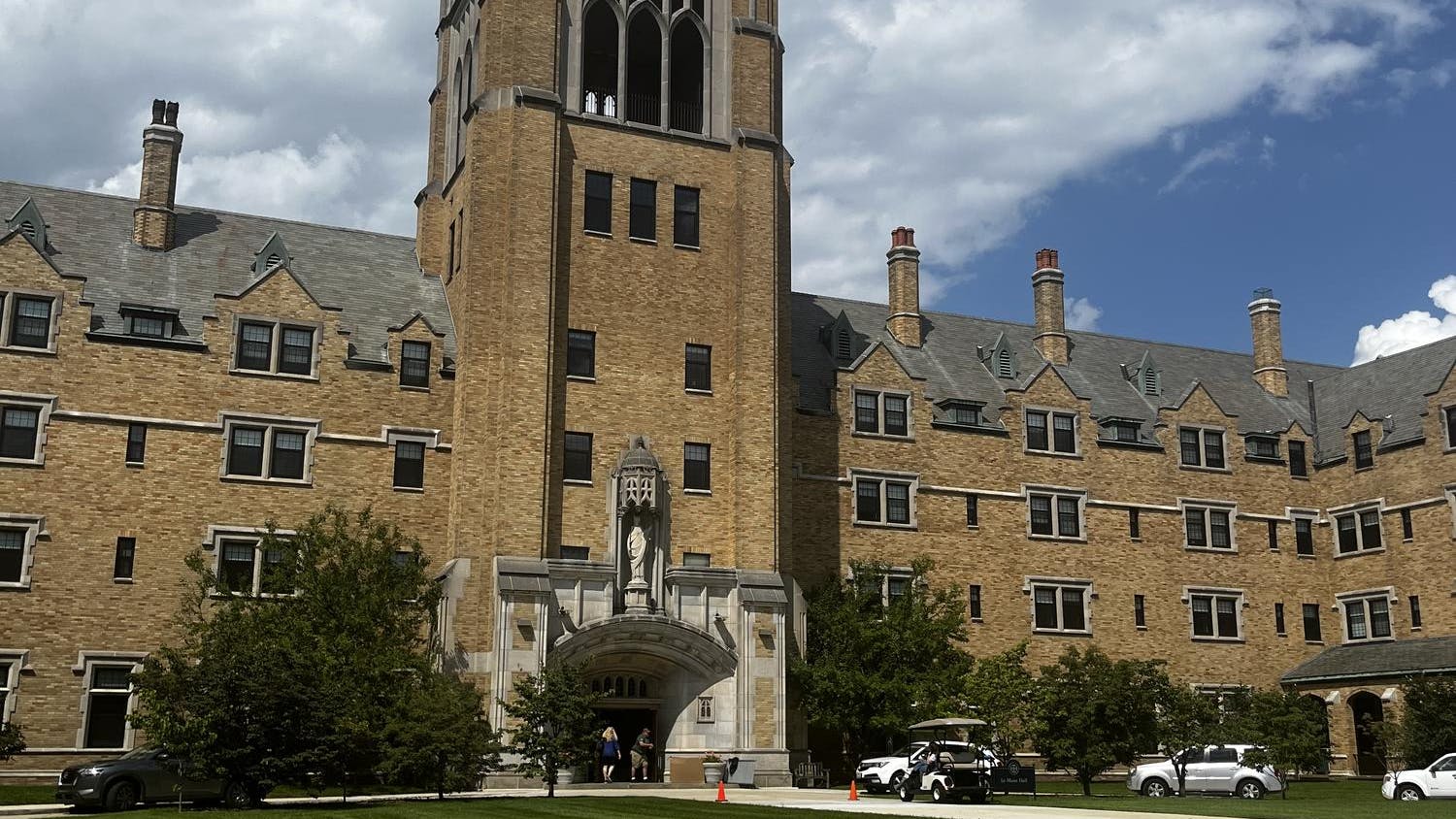“We need all students, whatever their future careers are going to be, to be able to think about science more like scientists do,” Nobel Prize winner Carl Wieman said as he urged Notre Dame to take a second look at education during Monday’s Notre Dame Forum event.
Wieman’s presentation, “Taking a Scientific Approach to Science Education,” is the first in a series of discussions that asks, "What do Notre Dame Graduates Need to Know?" In his lecture, Wieman offered an answer that stressed the learning experience as opposed to the learned material itself.
By the time a person becomes an authority in their field, they have developed a certain way of thinking about their discipline that gives them expertise, Wieman said. Students can begin to gain this expertise in a subject if they are exposed to a classroom environment that promotes discussion and interaction, rather than the standard lecture format most classes currently use, he said.
“It’s not that the knowledge [of a subject] is absolutely important, but what really matters is to have knowledge integrated with these broader underlying aspects of expert thinking,” Wieman said. “Because that’s really when the knowledge is useful, rather than a bunch of memorized facts that you can’t do anything with.”
While field experts are preferred to teach undergraduate courses, they may not initially understand the importance of this approach because of their own expertise, Wieman said.
“One of the challenges of actually being a good teacher if you’re an expert, particularly of introductory students, is that the way you think your brain worked when it was at their level is fundamentally wrong, because there’s no way for the brain to know it’s changing ... your brain is just plain different than [it] was when you were a beginning student,” he said.
Wieman said the focus on research in many universities could also impact education.
“We developed a system at research universities where really the only thing that’s measured — and it’s measured very carefully — is research productivity," Wieman said. "And that’s what gets measured and rewarded. And so, as a person who’s done lots of science research I appreciate that. ... It’s created the wonderfully productive research university system we have."
Wieman said universities' obsession with efficiency may decrease the quality of research.
“The problem is that because it’s the only thing that’s measured – it’s so effective at what it does – the collateral damage is that diverting even a small amount of time to pay attention to teaching and doing it more effectively penalizes a person and penalizes a department," Wieman said. "So we have to fix that basic system.”
Notre Dame physics professor Michael Hildreth said Wieman's contribution to the Notre Dame Forum addressed an important topic that the University itself hopes to address.
“The forum is supposed to address what Notre Dame students should know when they graduate, or I would rather phrase it, what Notre Dame students should learn while they’re here," he said. “Too often we get bogged down in what students should know, which is really focused on topics. ... I would rather turn that around to look at process. I would like to think that we would teach the students how to think.”













